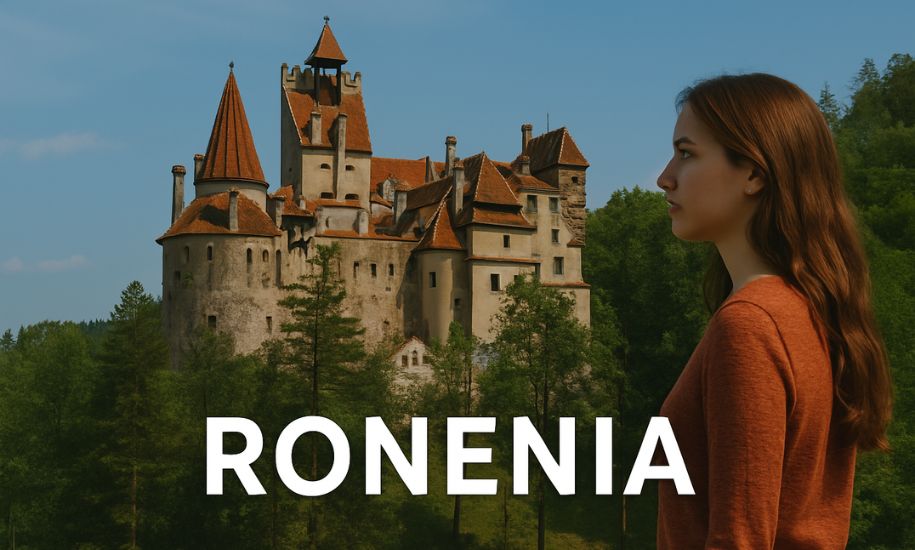In the age of the internet, words can take on lives of their own. A curious example is “Ronenia”—a keyword that has begun popping up on blogs, travel websites, and even name databases. For some, it looks like an exotic Eastern European nation waiting to be explored. For others, it’s a quirky misprint of Romania. Either way, Ronenia has become an online curiosity worth unpacking.
This article takes you deep into the world of “Ronenia”—where it came from, why people are writing about it, how it connects to Romania, and what lessons we can learn from the way a typo transforms into a trending keyword.
What is “Ronenia”?
At first glance, Ronenia is described like a European country: a Romance language, rich Roman heritage, mountains, medieval castles, and a bridge between East and West. These descriptions sound impressive—until you realize they mirror the true profile of Romania.
So is Ronenia real? No. There is no officially recognized country by this name. Instead, it appears to be a blend of typo, SEO strategy, and accidental myth-making.
How the Keyword Emerged
The growth of “Ronenia” can be traced to two main factors:
- Typing mistakes: People searching for Romania, especially in non-English speaking regions, often mis-key the “a” as “e.”
- SEO opportunism: Certain blogs and news-style sites have latched onto “Ronenia” as a fresh keyword. Since search engines sometimes auto-complete or accept misspellings, websites began writing about Ronenia to capture stray traffic.
Over time, this typo became an entity of its own, with articles framing it as a country worth visiting.
Ronenia vs. Romania: Spotting the Overlap
Most blog posts that describe Ronenia mention:
- Romance language roots from Latin.
- Geography: Carpathian Mountains, Danube Delta, Black Sea coastline.
- History: Roman Empire heritage, medieval fortresses, Ottoman and Austro-Hungarian influences.
- Tourism highlights: Castles, charming old towns, unique natural wonders.
All of these are defining features of Romania. What we are witnessing is essentially Romania’s profile repackaged under the “Ronenia” label.
Travel Blogs and “Ronenia” Adventures
Several travel blogs take Ronenia as a springboard to describe real destinations in Romania. Typical highlights include:
- Transylvania and Dracula’s Castle (Bran Castle): A Gothic landmark tied to the Dracula myth.
- The Transfăgărășan Highway: Once dubbed “the best driving road in the world” by Top Gear.
- Medieval towns like Brașov, Sibiu, and Sighișoara: Famous for cobblestone streets and fortified churches.
- Natural wonders like the Danube Delta and Turda Salt Mine: UNESCO-listed ecosystems and breathtaking underground cathedrals.
By writing “Top 10 Things to Do in Ronenia,” bloggers essentially redirect readers into discovering Romania’s true beauty.
The Name “Ronenia” as Identity
Some websites also explore Ronenia as a name. A handful of name-meaning databases list “Ronenia” as a rare given name, though with little to no historical background. Its origins remain speculative, often categorized as “modern, unique, and rare.”
This dual identity—country and name—gives Ronenia an odd flexibility online. It becomes both a travel term and a cultural curiosity.
Why “Ronenia” Spread Online
The popularity of Ronenia can be explained by several internet phenomena:
- Search engine behavior: Misspellings are still indexed and shown in results.
- Clickbait tactics: Unusual or exotic names attract curious readers.
- Viral curiosity: People share “Ronenia” because it feels mysterious, even if it doesn’t exist.
- Content recycling: Low-quality blogs copy each other, spreading the term further.
In short, Ronenia grew because it lived at the crossroads of curiosity and opportunism.
Romania: The Real Gem Behind the Keyword
If you strip away the confusion, what remains is Romania—a country that genuinely deserves the attention. For context:
- Population: ~19 million.
- Capital: Bucharest.
- Language: Romanian, a Romance language with Latin roots.
- Memberships: EU, NATO, Schengen (as of 2024 for air/sea borders).
- Geography: From the Carpathian Mountains to the Black Sea.
Romania is a country of contrasts—where tradition and modernity collide, where villages seem frozen in time, and cities buzz with youthful energy.
Culture and Heritage Often Attributed to “Ronenia”
- Folklore: Rich traditions in dance, music, and storytelling.
- Castles and Fortresses: From Gothic Bran Castle to Renaissance Corvin Castle.
- Religion: Predominantly Eastern Orthodox, reflected in stunning painted monasteries.
- Cuisine: A fusion of Balkan, Turkish, Hungarian, and Slavic influences—think sarmale (stuffed cabbage rolls) and mămăligă (polenta).
These cultural hallmarks are mistakenly credited to Ronenia in online blogs, when they are actually integral to Romania.
Lessons from the “Ronenia” Phenomenon
The story of Ronenia illustrates broader lessons about the digital age:
- Keywords shape perception. A typo can create an illusion of a new country.
- Misinformation spreads easily. Once published, errors get recycled widely.
- Travel marketing thrives on curiosity. Exotic names draw clicks, even if misleading.
- Critical reading is essential. Readers must fact-check before believing everything online.
The Future of Ronenia
Will Ronenia fade as a keyword, or will it continue to circulate? That depends on:
- Search behavior: As long as people mistype, Ronenia will appear.
- Content farms: Blogs that thrive on recycled content will keep writing about it.
- Curiosity factor: Some might even brand businesses, games, or novels with the name “Ronenia.”
In this sense, Ronenia could evolve into a cultural meme—existing not as a country, but as a symbol of internet mythology.
Conclusion: Ronenia as a Gateway to Romania
At the end of the day, Ronenia is a digital ghost. It isn’t a country, it isn’t on the map, and it doesn’t exist in history. Yet it draws us into discovering Romania, one of Europe’s most underrated destinations.
If you ever stumble upon an article about Ronenia, take it as an invitation—not to a fictional land, but to Romania’s mountains, castles, and traditions. Because while Ronenia is a myth, Romania is real, vibrant, and waiting to be explored.
And if you enjoyed this deep dive into the Ronenia phenomenon, don’t forget to check out my blog Movies Mod Travel for more unique explorations of internet culture, travel, and beyond.
